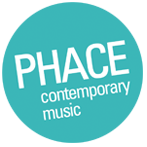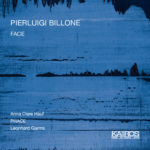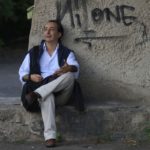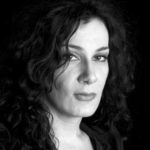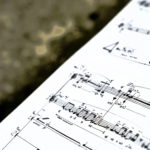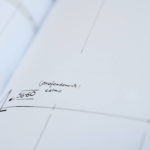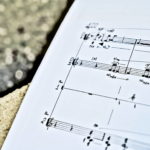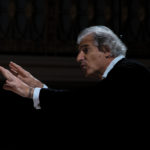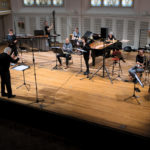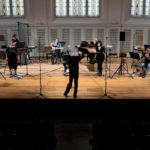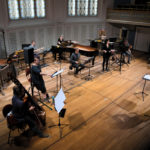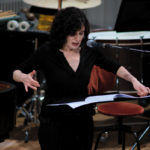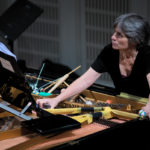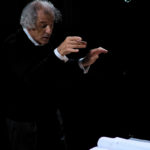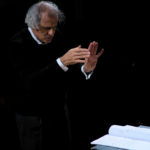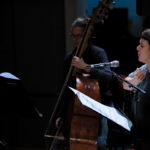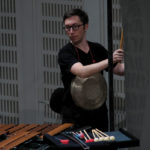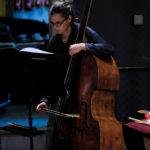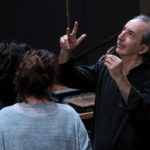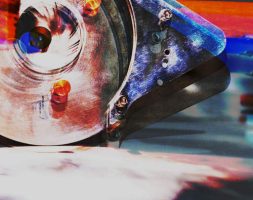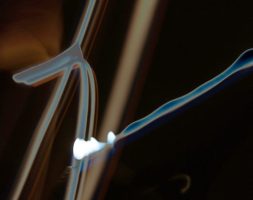PROGRAM
Pierluigi Billone
FACE Dia.De
for two female voices and 8 instruments (2019) (world premiere) (65′)
commissioned by PHACE, Wien Modern and Berliner Festspiele / MaerzMusik – Festival für Zeitfragen
with financial support by BKA.
Press review:
Enthusiasm in the Mozartsaal of the Konzerthaus! “A rush, I’m very drunk, it was so beautiful,” enthused a gentleman in the dressing room after the premiere of Pierluigi Billone’s 65-minute piece “FACE Dia.De”, a composition commissioned by PHACE, Wien Modern and Berliner Festival. Emilio Pomàrico directs the singers and eight musicians of the outstanding ensemble PHACE, founded in 1991, which found its artistic home with its own subscription series at the Wiener Konzerthaus, through the enormously complex score. It is reminiscent of a ritual, of a “cultic space”. FACE Dia.De was the first highlight of the Festival Wien Modern. (Karlheinz Roschitz, Kronenzeitung, 7.11.2019)
***
“The 65-minute work for two voices, saxophone, trombone, electric guitar, piano, percussion, cello and double bass does not play with text, but lets the vocals flow in nonverbal rhythms and sounds. With self-evident virtuosity, Anna Clare Hauf and Annette Schönmüller unlock a huge spectrum of vocalizations, between expressive vocalise and cackling, the fabulous ensemble “PHACE”, under the inspired direction of Emilio Pomàrico, concentrates the shimmering, sometimes weightless, then explosively discharging sounds into a trance-like density. ” (Regine Müller, NMZ, 2/2020)
In 2016 PHACE premiered FACE for voice and ensemble (65 ‘) by Pierluigi Billone at Festival Wien Modern 2016 and later at Philharmonie Luxembourg and Festival Ultraschall Berlin. For season 2019/20 PHACE commissioned FACE Dia.De for 2 female voices and 8 instruments, which should enter and extend the dimension, which the collaboration with Face has opened.
Pierluigi Billone about FACE Dia De:
»›FACE Dia.De‹ is the second part of my composition ›FACE‹ for voice and ensemble from 2016. The first part of the title, ›FACE‹, is derived from the old Italian world for light or star, as well as the English concept of face. The second part, ›Dia.De‹, signals the voice is always a dyad, ie. an entity made up of two separable parts. Dia and Deare also individual references to Diamanda Galas and Demetrio Stratos, two Greek singers whose lives are an adventure of the voice. There is no text. The voice flows to its rhythms and fashions, before the words emerge, its own accents. It is a constant vocal flow in which one voice always contains the other, there are plural, vocal acts that arise in the body and out of the body. They are autonomous, pre-verbal, they are the background and the foundation on which every word could find its place, but which is unnecessary here. Also, no literary or intellectual reference is needed to encounter the singing whose completeness and autonomy reach an area where the word can only have a limiting effect.« (Pierluigi Billone)
“Pierluigi Billone belongs to one of those rare magicians, who can suspend lineal time. One assumes with his music as if to enter a ritual space”
(Heinz Rögl)
“…his radical methods have led him to explore unchartered soundworlds and to develop idiosyncratic instrumental and vocal techniques. Nevertheless, the concurrent roots of these sources of inspirations lie in an archaic world – a sacred universum – where, as if for him, the most progressive standpoint of modernity would be when music itself reaches its own phenomenal essence.”
(Philippe Albéra)
